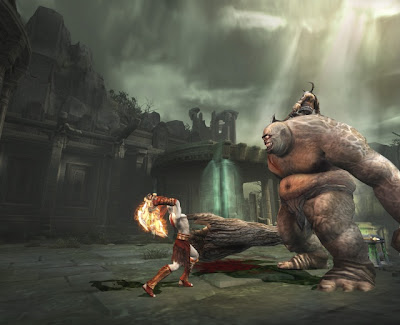A few years ago at GDC or MIGS there was a talk on using the
concept of micro-lending to fund more games.
The basic principle (as applied to games) would be that a big studio,
who would normally $10 million into one game, banking on that being a hit,
would instead put $1 million into ten projects, some of which would bomb, but one
of them would be a big hit. The money
made in the successful games would make up for the losses of the poor games.
In this way, big studios would make medium-budget
games. This is a less risky strategy in
theory because you are no longer putting all your eggs in one basket.
 |
| Image: relevant! |
A recent post on Destructoid revealed that big-budget gamesare becoming too big, and the latest Tomb Raider was a failure at 3.6 million
copies sold.
How can 3.6 million be considered a failure? At $70 a pop (a ridiculous price in the first
place), you're looking at $252 million gross profit. Just how much does a game cost to make? I can't imagine the budget for Tomb Raider
for the net to be in the red.
It's been a couple of years since I saw that talk, and I'm
surprised the advice still hasn't been followed. If big companies like THQ are going down, and
even hugely popular games are considered failures, surely executives are seeing
the warning signs. If budgets aren't
reigned in, they will find themselves in the same hole as THQ.
Gamers seem to support this concept as well, with their
wallets. Just look at the hardware for
the obvious example: the PS3 was
technically proficient, and expensive, but the Wii, while lacking
technologically, was cheaper, and the Wii is hands down a bigger success than
the PS3.
 |
| Trend line not necessarily continuing into Wii U. |
That is not to say that there is no market for big-budget
games--after all, the PS3 did still sell; it's not like it was avoided like the
plague. But the amazing success of the
Wii suggests perhaps the balance of big-budget and medium-budget games should
shift. Some companies should diversify
their projects and split up the cash, giving themselves a greater shot at
success, by offering more games at cheaper prices. Then selling 3.6 million won't be considered
a failure, and they'll be more likely to hit that mark anyway.
Some companies are great at big-budget games, and those
successful ones have no need to change their strategy. But Square Enix, the developer/publisher
behind the latest Tomb Raider and Hitman games, for instance, seems to be failing
at making the big-budget titles.
And to clarify: I am not saying these games are garbage or
anything, just that Square Enix itself considers them failures for not making
the profit they need.
So Square Enix ought to consider the move toward many
medium-budget games. They can take
chances on new IPs, work on games of all genres, and discover which games
become big hits through a less risky trail-and-error system. Using that knowledge, they can then give
sequels to the successes bigger budgets if they think they can make that kind
of profit with them.
 |
| Looks great, but not $100 Million great. |
But let's talk about what a medium-budget game is. A big-budget game, of course, would be the
AAA variety we get from major studios. A
small-budget game comes off the likes of indie studios that don't have much
financial support, or even casual games (it doesn't take a particularly high
budget to make a Facebook game or a match-3 mobile game).
But what does a medium-budget game look like? Well, essentially, they're a generation
behind. God of War 2, for the PS2, had a
budget of only a million dollars. God of
War 3 had 44 times the budget. God of War 3 was not 44 times better, and did
not sell 44 times as many copies.
I would happily play a game that looks a few years old if I
could get it for even half the price.
Yet a medium-budget game could sell for as low as $20 and only need to
sell 100,000 copies for 100% profit.
I think the industry is shooting itself in the foot by
raising their budgets and prices so high that only extreme hobbyists can afford
their products. By doing so, they're
fighting over smaller and smaller markets.
They also seem to think that the solution to poor sales on the last game
is to throw money at the next game.
But there is a wide open market for medium-budget games to
bridge the gap between the AAAs and the casual/indie markets. More potential gamers would be willing to try
core games if they weren't so expensive, so they could get their feet wet and
see if it's right for them. Some gamers
would find they enjoy them, and then be more willing to pay for the $70 games. So medium-budget games would have a larger
impact than just the sales of the medium-budget game--it might impact the sales
of the big-budget game in a positive way.
Then games like Tomb Raider will hit their goal, and that ultra-high
budget will be justified.
 |
| You know what? Six years old and still looks good. |
No comments:
Post a Comment